
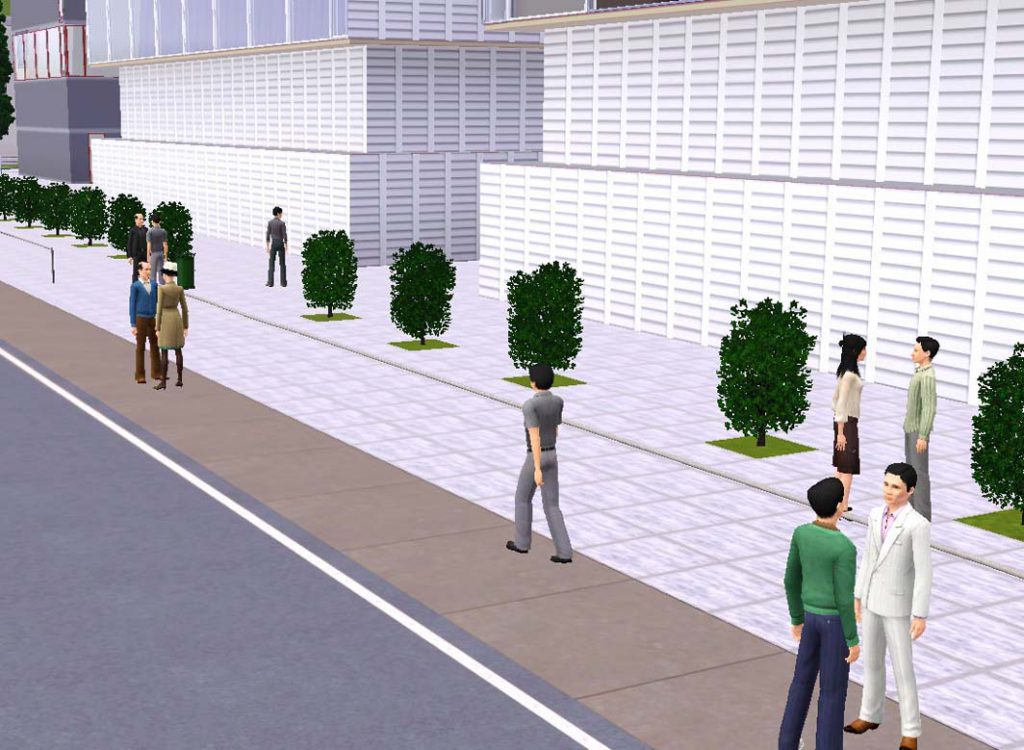

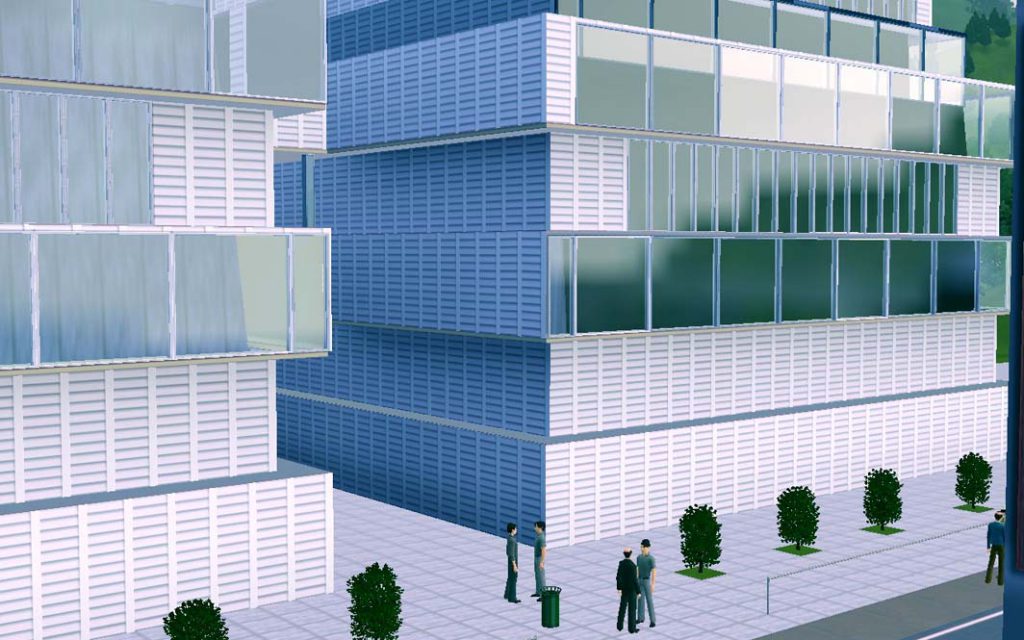
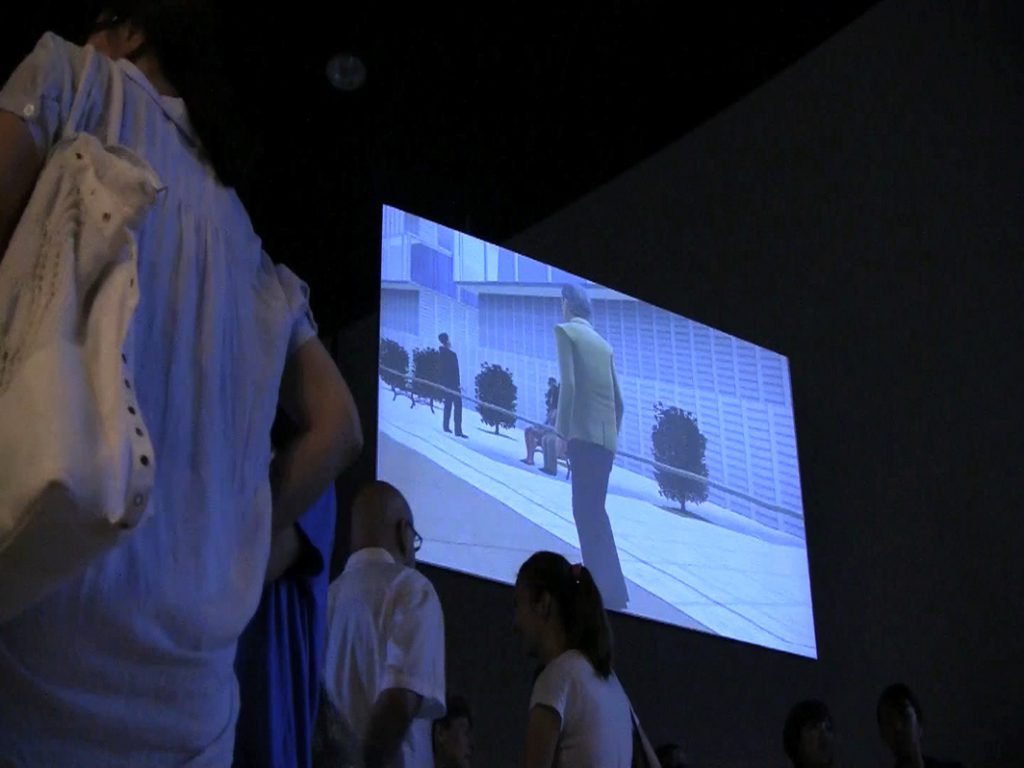
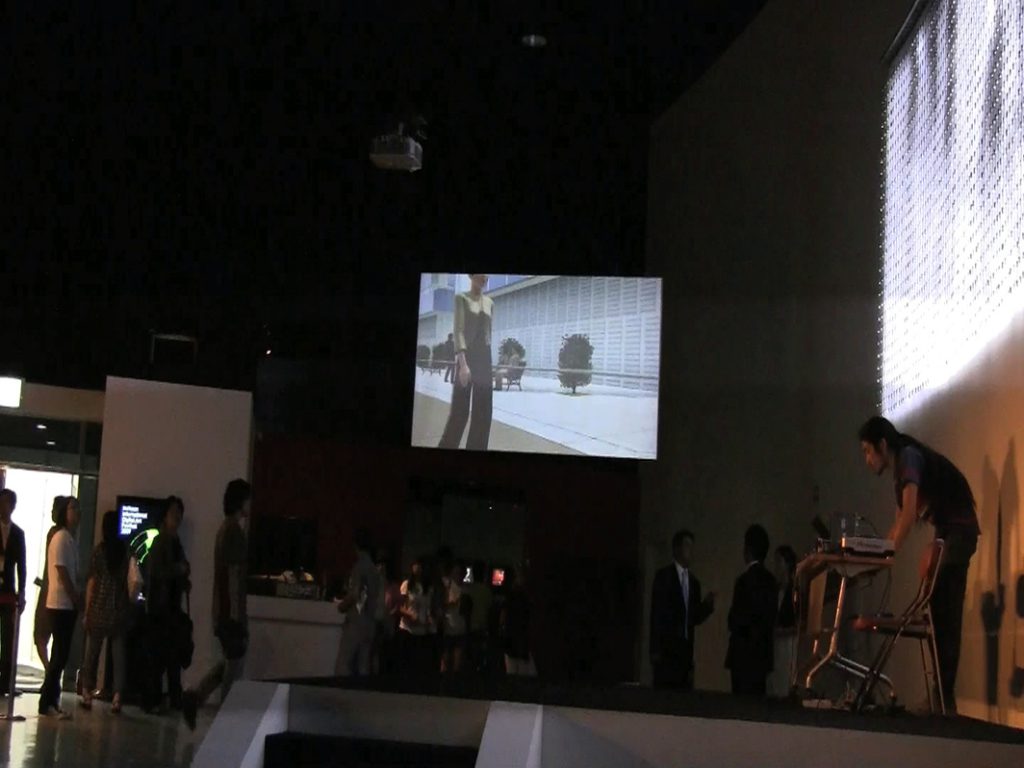
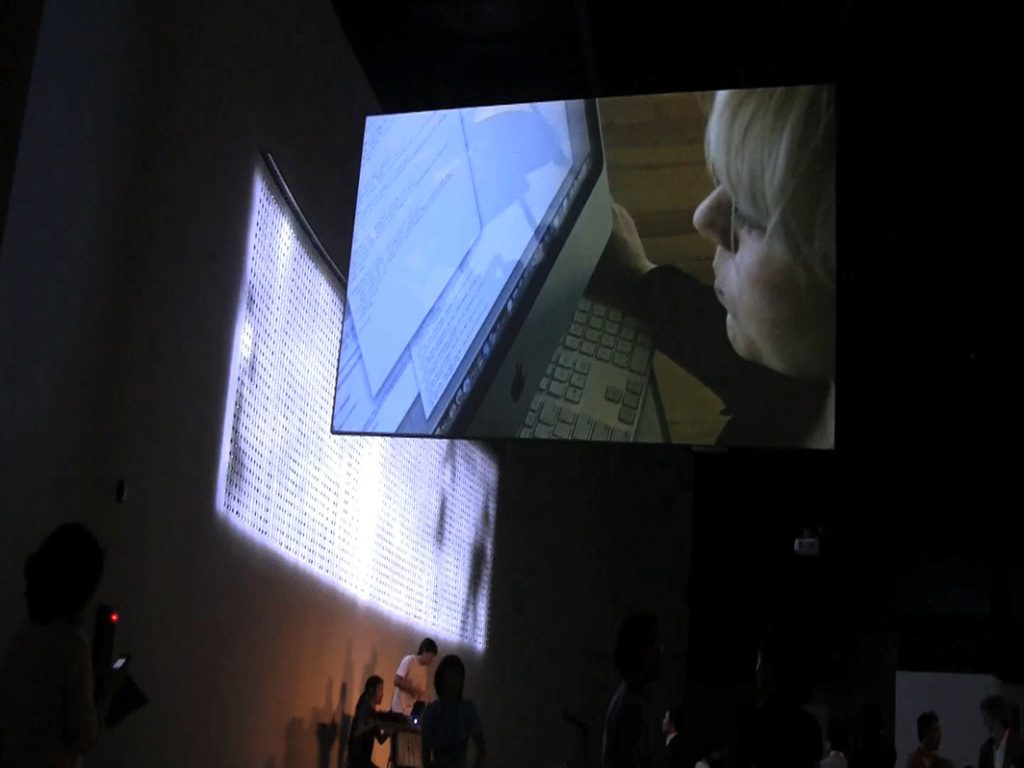
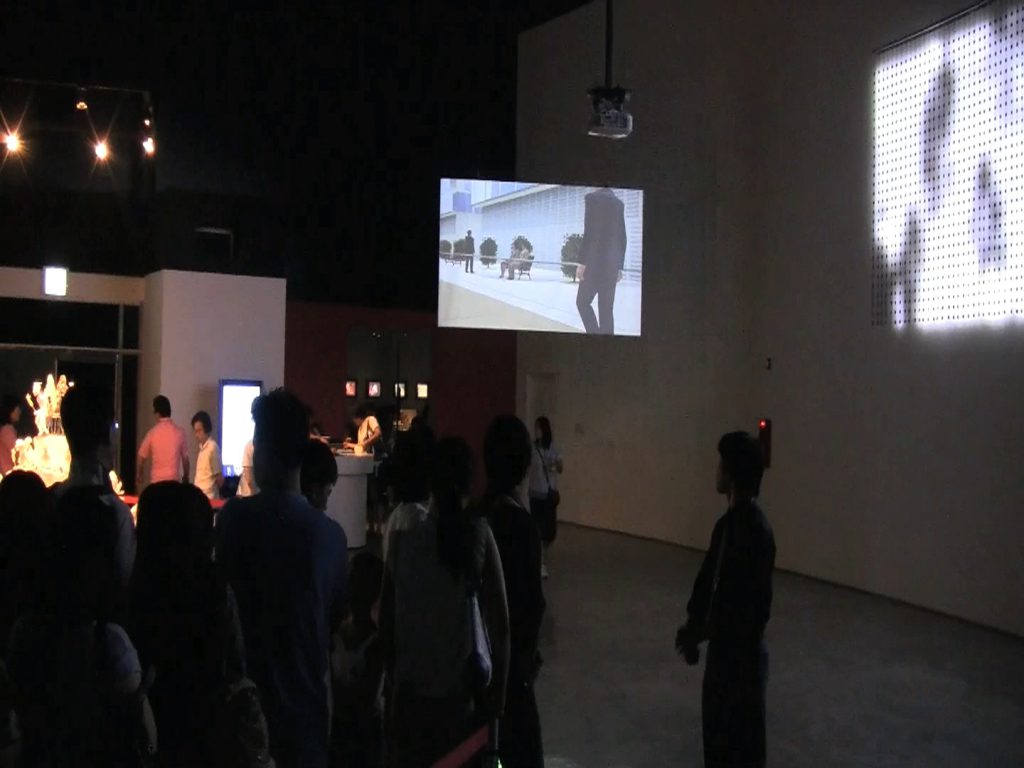
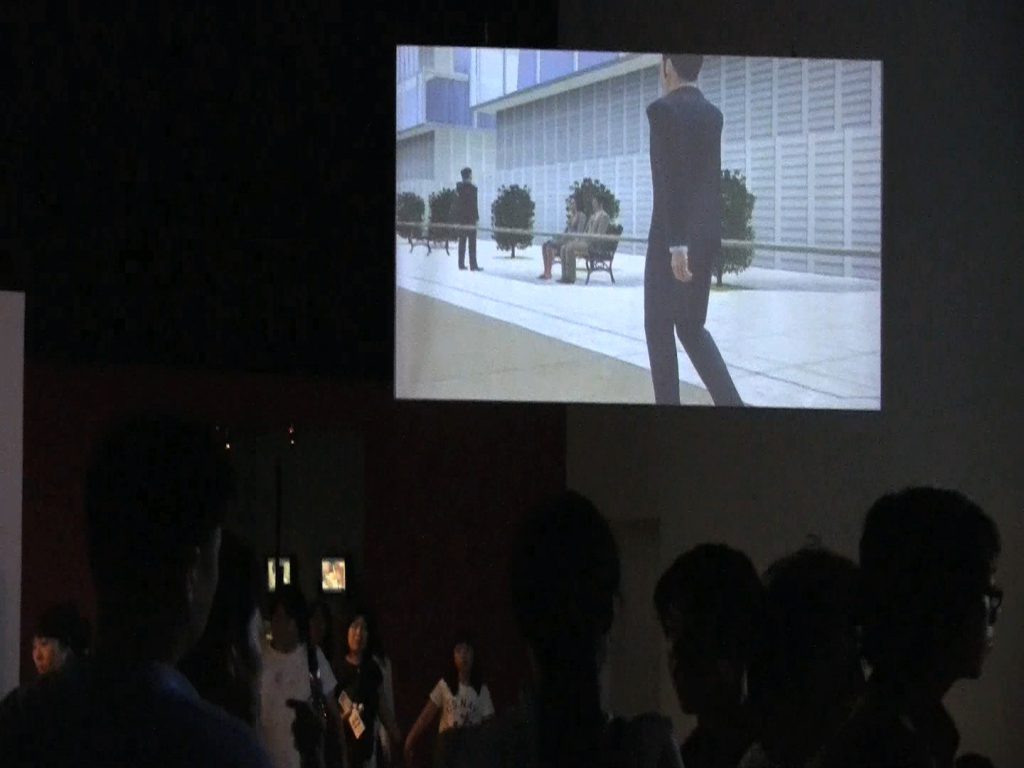

Video
[perfect.city]
2 channel video
dimensions variable
2009
[perfect.city] is an exploration of the South Korean city of New Songdo before it was actually build. New Songdo was a planned futuristic smart city built from scratch outside of Incheon. The city was entirely developed by corporations (Gale International, with a digital infrastructure designed by tech companies) to accommodate high-tech lifestyles.
The city is designed to literally be perfect: plans call for the elimination of social ills, care-free living, and happiness for all citizens—the city plans in the form of 3D building models were input into Google earth before the city was built.
I took the models from Google Earth and rebuilt the virtual city in the popular games The Sims 2. I then populated the city with virtual inhabitants with their own personalities and characteristics. [perfect.city] became functional before New Songdo was actually built. The virtual seemingly manifested the physical. The virtual inhabitants in a city so perfect don’t have much to do. They chat and read newspapers, or look at their devices. Sadly, there are no birds.
Even the land itself was constructed. The city was considered to be a “green city” with state of the art water processing and such, built atop a giant landfill south of Seoul. Ubiquitous technology and smart monitoring was an essential feature of the planned infrastructure. Since, concerns over an all-knowing, “Big Brother style” technological infrastructure have been raised. As a corporate venture, public space in New Songdo was privatized. “We will build in all this functionality,” answers Catherine Maras, Microsoft’s Director of Worldwide E-Government who is involved in the Songdo project. “Really it’s opt-in or opt-out. Whatever the citizens want to make their lives easier.”
Years later, Songdo is “lonely” according to Bloomberg. It’s not the first Utopian city to struggle; Brasilia is one of many another examples, which at its completion in 1960 promised a utopian experience of a redesigned city specifically for the modern lifestyle. Inevitably, utopian visions are met with the mundane realities of living inside these ‘golden dreams’. Today, Brasiliense families manifest their rejections of utopian design by reasserting familiar values, concepts and conventions of urban life. Songdo may function in a similar way.
[perfect.city] is a 2-channel video installation consisting of a large double-sided projection screen.
One side of the screen alternates between live-action footage of the artist recreating the design process of the city, scrubbing backwards and forwards through time, mixed with a time-lapse recording of the planning and construction of the virtual city. This video component mimics a documentary style look at “the making of” New Songdo. In depicting the role of ‘planner and developer’ in [perfect.city], I embody and perform the process of creating utopian visions.
On the opposite screen is the slow motion city in action as developed in The Sims 2. The people are a population wandering aimlessly to and from virtual jobs, or sitting on park benches, aimless. All are well dressed. All are clean and tidy. They walk amid a bland and featureless urban street-scape. This future city is unattached to history and the somnambulistic quality of the pedestrians point to the weary, stale, and unprofitable experience of techno-utopianism.The featureless city streets depicted call into question the all too brief period and limited input from non-corporate entities devoted to planning the city.
In [perfect.city] I explore technological mediation in everyday settings and how it both reflects and creates phenomenological experiences.
[perfect.city] was commissioned for the inaugural celebration of the opening of the art center there that featured visionary digital works from national and international artists.
Exhibitions
- Small World Exhibition, Southend-on-Sea, UK, 2010
- Incheon Digital Art Festival, New Songdo, South Korea, 2009